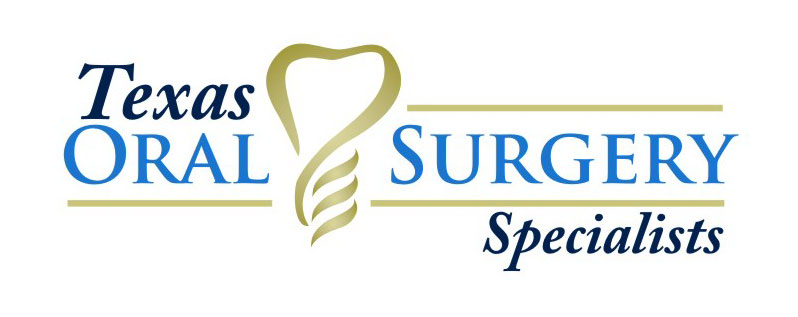 The temporomandibular joint (TMJ) is the most frequently used joint in the body. This small joint is found near the ear where the lower jaw and skull connect and allows the jaw to move in several directions. The TMJ is made up of several working parts like muscles, ligaments, bones, and cartilage so when one of these parts stops working correctly, the entire joint can lose its functionality. The result is TMJ disorder which limits the range of motion and creates pain and swelling.
The temporomandibular joint (TMJ) is the most frequently used joint in the body. This small joint is found near the ear where the lower jaw and skull connect and allows the jaw to move in several directions. The TMJ is made up of several working parts like muscles, ligaments, bones, and cartilage so when one of these parts stops working correctly, the entire joint can lose its functionality. The result is TMJ disorder which limits the range of motion and creates pain and swelling.
Dr. Chris Tye with Texas Oral Surgery Specialists is an experienced and highly trained oral surgeon in the Colleyville, TX area who specializes in diagnosing and treating TMJ disorders. He is a recognized leader in dental and surgical care. Call us today to schedule a consultation and review treatment options for your specific case. You can call us at 817-329-3223 or reach us anytime online.
How Do I Know If I Have TMJ Disorder?
General TMJ disorder symptoms may include:
- Clicking or popping noise when opening or closing the mouth
- Dizziness or vertigo
- Facial muscle spasms
- Headaches, migraines, and blurred vision
- Localized pain or tenderness in the jaw joint
- Lockjaw after yawning
- Pain at the back of the tongue
- Pain in the neck and shoulder area
- Pain that may feel like a toothache
- Popping sounds or ringing in the ears (tinnitus)
- Restricted jaw movement
- Sharp pain or pressure behind the eyes
- Stiff facial muscles
- Swelling and pain in the temples
- Trouble chewing
- Upper and lower teeth feel misaligned (malocclusion)
Many patients describe TMJ pain as a dull, aching throb that lasts all throughout the day or comes and goes. Some facial pain can be so debilitating that it hinders you from eating or speaking.
What Causes TMJ Disorder?
The exact cause of TMJ disorder is unknown. Many factors can contribute to the pain, tightness, and swelling patients experience, including:
- Anxiety
- Arthritis or other inflammatory musculoskeletal disorders
- Dislocated ligaments
- Gum chewing (excessive)
- Hereditary misalignment (malocclusion)
- Orthodontic braces
- Poor posture
- Prior trauma to the teeth and/or jaw
- Stress
- Teeth grinding (bruxism)
Who Is At Risk for TMJ disorder?
There are several risk factors which include:
- Females age 18 to 44 years
- Misaligned teeth
- Neck strain from poor posture in the neck and back
- Patients with chronic inflammatory disorders
- Predisposed to pain sensitivity and increased stress
- Stress in the body may increase muscle tension and jaw clenching
- Trauma to the jaw
Are There Any Home Remedies for TMJ disorder?
Many patients respond well to home remedies. Here are a few to consider:
- Avoid chewing gum
- Eat soft foods
- Essential oils may help the muscles relax like lavender, chamomile, sweet marjoram, and clary sage
- Facial massage or a full body massage to relax the body and reduce stress
- Manage and reduce stress
- Over-the-counter nonsteroidal anti-inflammatory drugs (NSAIDs) like ibuprofen, naproxen, aspirin, and acetaminophen
- Place ice packs on the inflamed areas
- Relaxation techniques
- Warm/moist heart
What Are My Non-Surgical and Surgical Treatment Options?
If home remedies are not enough to ease your TMJ pain, your doctor may try the treatment options below before considering jaw surgery. They include:
- A mouth guard-like appliance placed in the mouth can be used to keep the teeth in proper alignment and prevent tooth grinding
- Acupuncture
- Antidepressants to reduce stress and anxiety
- Biobehavioral management may help ease the intensity of the pain
- Orthodontics
- Physical therapy for your jaw muscles can help improve flexibility and range of motion
- Prescription-strength muscle relaxers, sleep medications, nerve pain medications, and anti-inflammatory medications
- Steroid Injections
When other forms of treatment for TMJ disorder have been ineffective, jaw surgery may be necessary. Your surgeon will consider two types of surgical procedures to treat TMJ disorder; arthroscopy or reconstructive jaw surgery. Arthroscopy is a minimally invasive procedure, done in an outpatient setting. A full week with rest is required for recovery. Reconstructive surgery may include a total joint replacement. This inpatient surgery will require a few days in the hospital. Once you’re released, recovery may take about four to six weeks.
Contact Us
Possible relief from your TMJ disorder pain is only a phone call away. Call us today at 817-329-3223 to schedule a consultation or reach us online.


